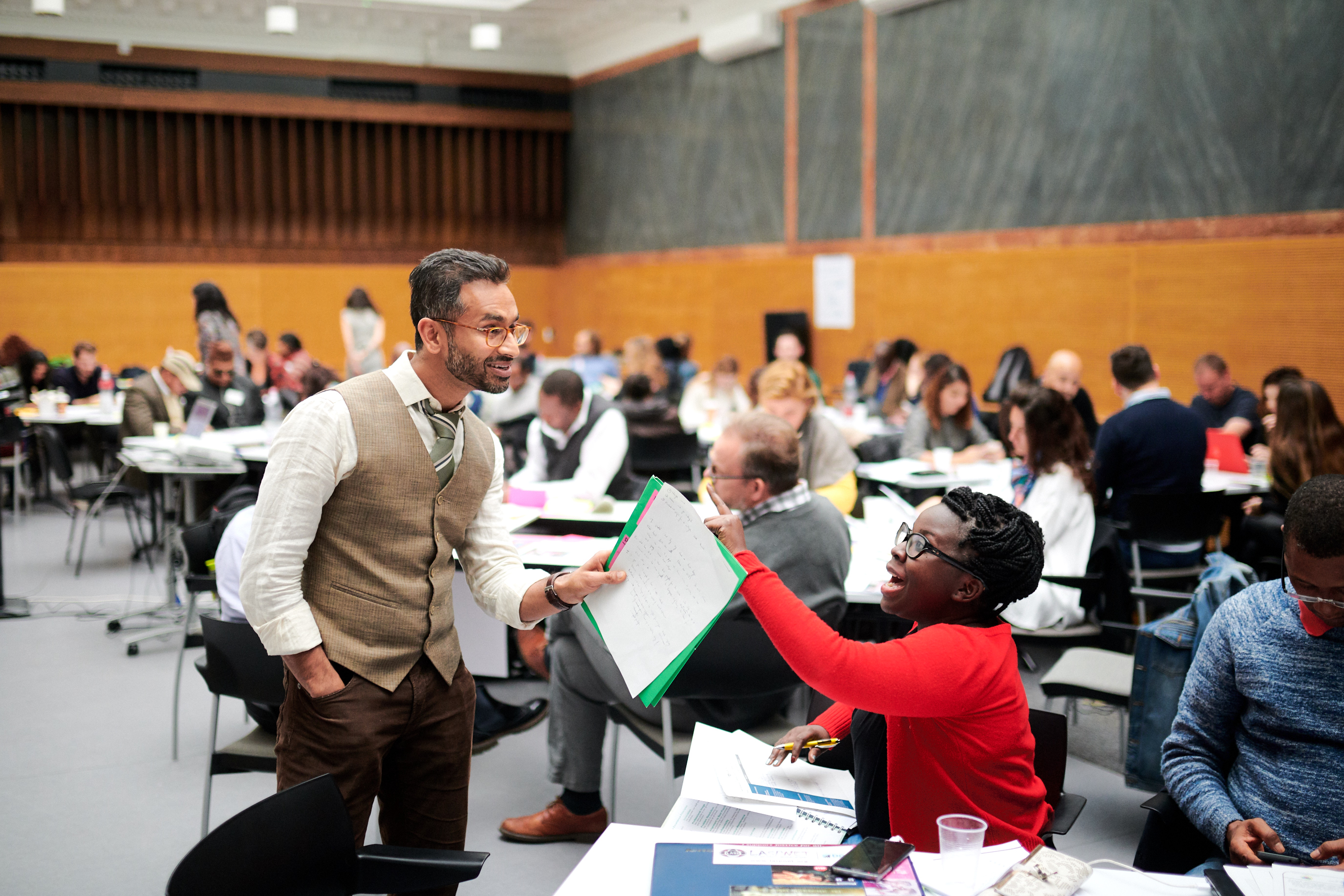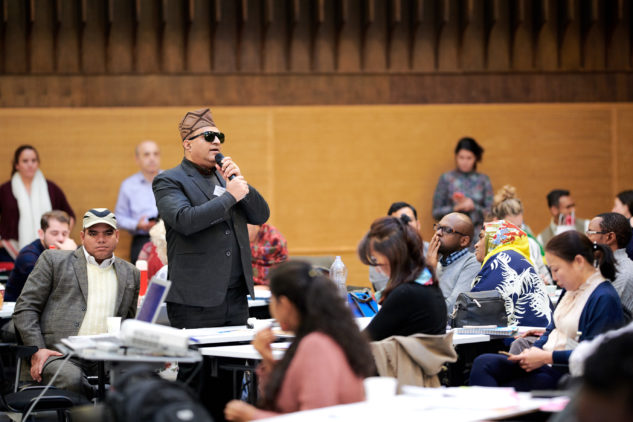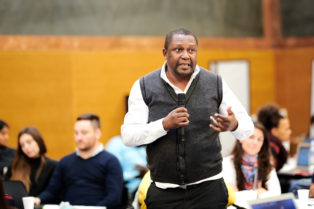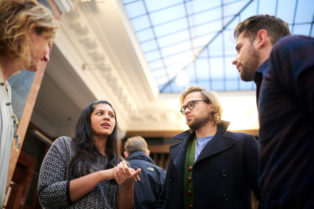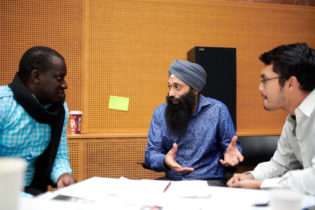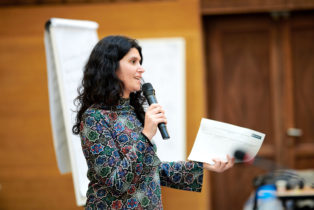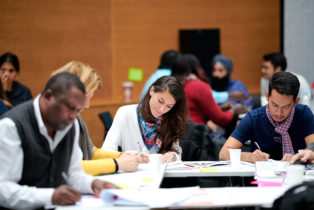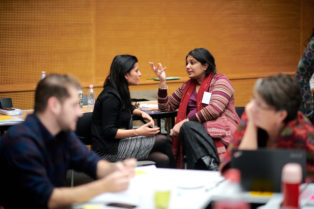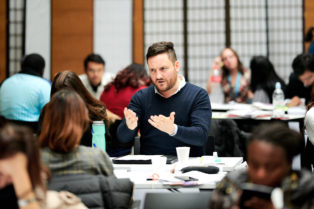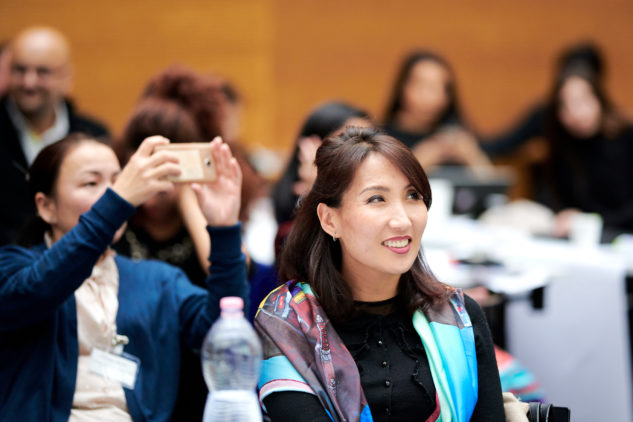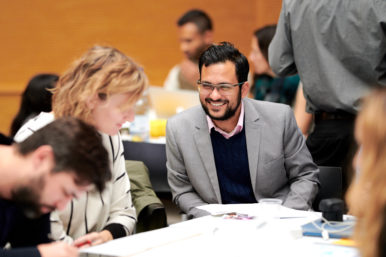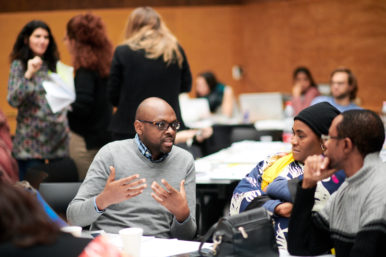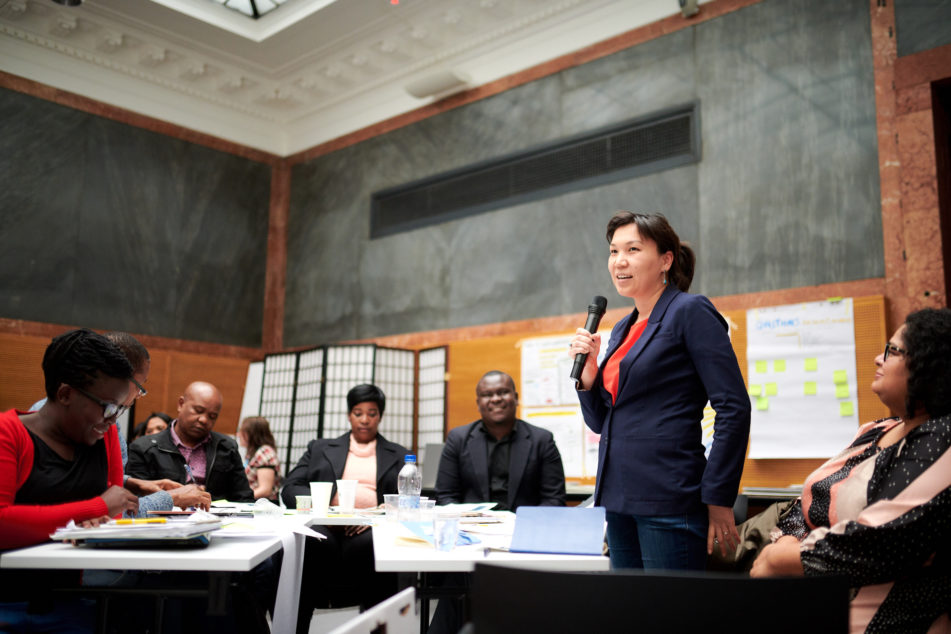The theme for the 2017 Legal Empowerment Leadership Course was “Law and Organizing”
Held in partnership with Central European University, Open Society Justice Initiative, and Robert L. Bernstein Institute for Human Rights at New York University School of Law, the course brings together outstanding practitioners, researchers, and government officials from all over the world. Our goal is to cultivate a global cadre of leaders who are committed to legal empowerment and connected with each other.
63 participants from 31 different countries identified a concrete challenge or growth opportunity or research question before the course, and then developed an action plan during the course with the help of co-participants and faculty. The course featured a comparative exploration of common themes across three case studies. Themes included legal empowerment methods; training, supervision of frontline staff; learning and evaluation; use of media and communications; financial sustainability; and pathways to scale.
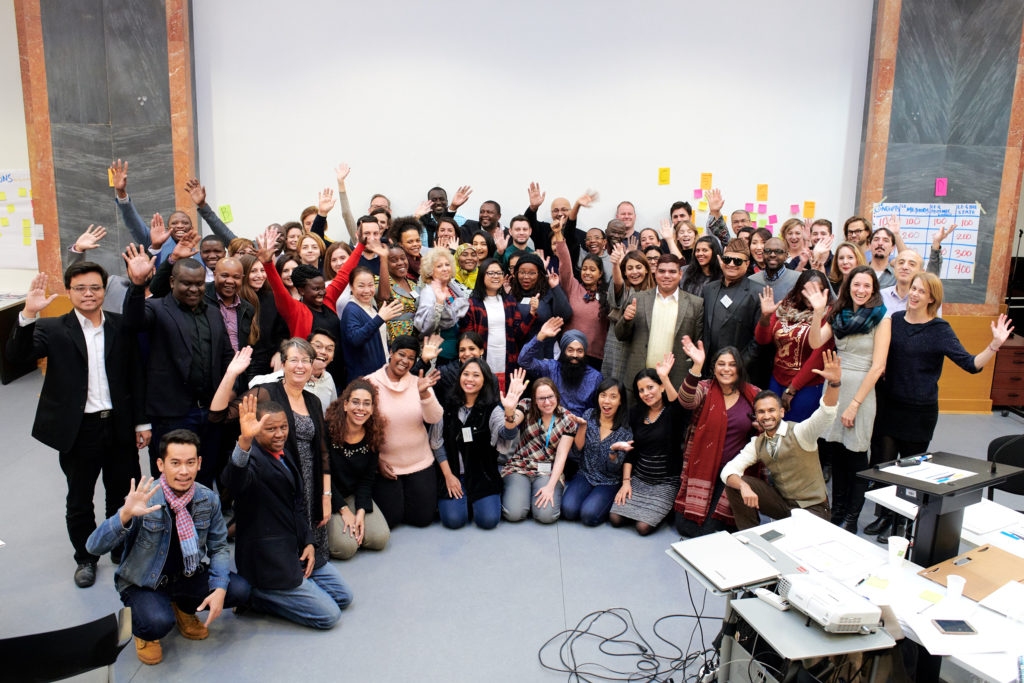
The course featured a comparative exploration of common themes across three case studies. Themes included legal empowerment methods; training, supervision of frontline staff; learning and evaluation; use of media and communications; financial sustainability; and pathways to scale.
Case Studies
The course featured a comparative exploration of common themes across three case studies, in addition to the overall course theme of law and organizing. Themes included legal empowerment methods; training, support, and supervision of frontline staff; learning and evaluation; financial sustainability; gender; and pathways to scale. Case study topics included:
The paralegal movement in the Philippines
How the movement of community-based paralegals have adapted and innovated over the decades, to bring about large-scale change in the Philippines.
Institutionalizing community-based justice services
This session focuses on how the community justice services can be recognized, institutionalized, and publicly financed by governments through a case study from Ontario, Canada.
Ensuring effective delivery of essential services
How a women-led movement of grassroots advocates, lawyers, and activists is enhancing accountability and advancing the rights of health, food, and housing to marginalized communities in India.
Cross-cutting Sessions
Cross-cutting sessions will address special challenges faced by the movement for legal empowerment.
Session I
Introduction to legal empowerment. This introductory session will explore what we mean by legal empowerment. It will address basic concepts, history and philosophy. The session will offer a vocabulary and a set of questions that we will return to throughout the course.
Session II
The intersection of law and organizing. This session will explore how legal empowerment groups have combined strategic litigation and legal services with community organizing.
Session III
Translating grassroots experience into systemic change and back again. This session will investigate the use of grassroots experience from legal empowerment work towards advocacy and long term systemic change.
Session IV
Learning from program data. This session will look into monitoring and evaluation techniques and innovative ways of applying evaluation data to improve programming and research efforts.
You can read a detailed summary of the 2017 Leadership Course on our online forum.

